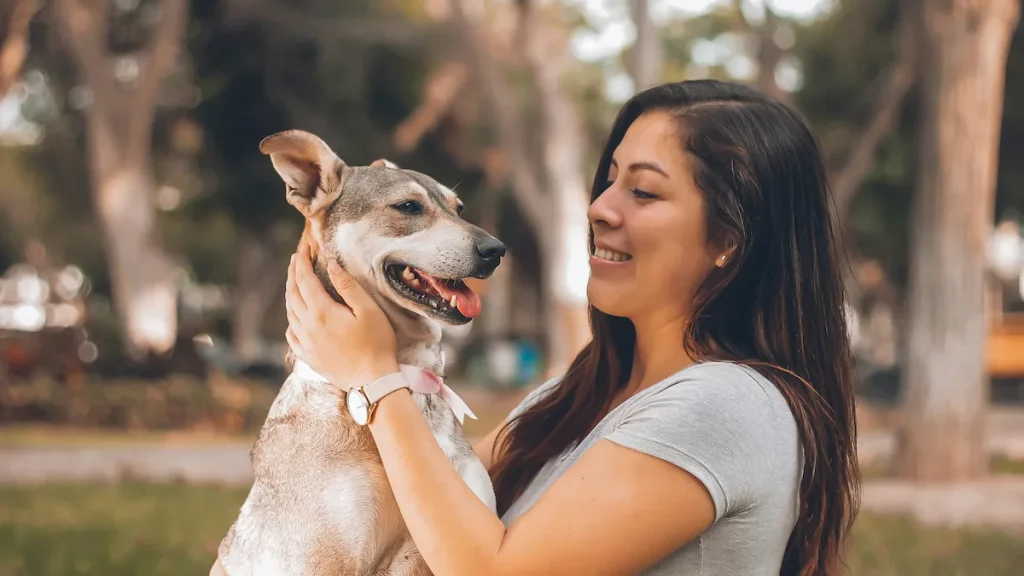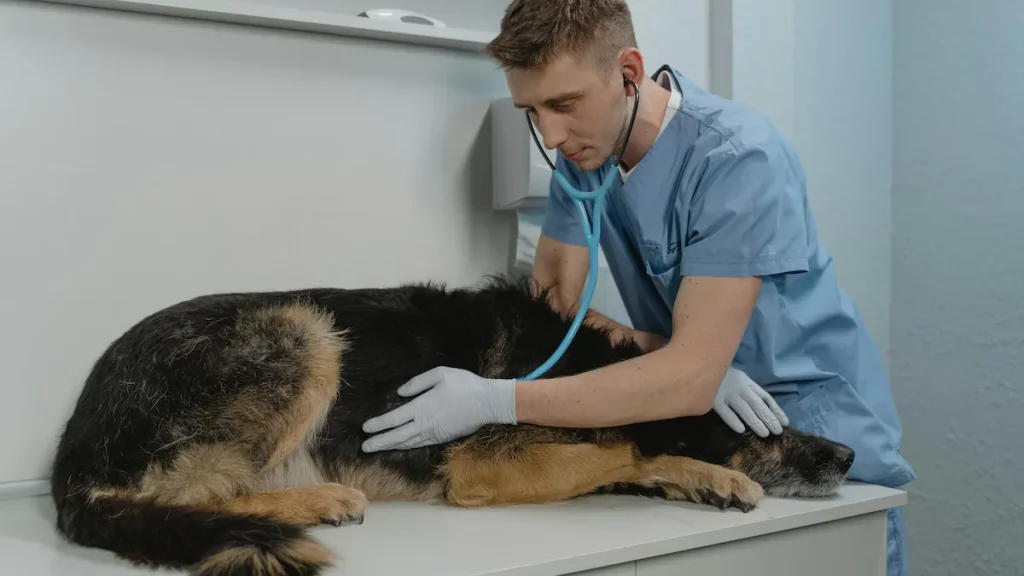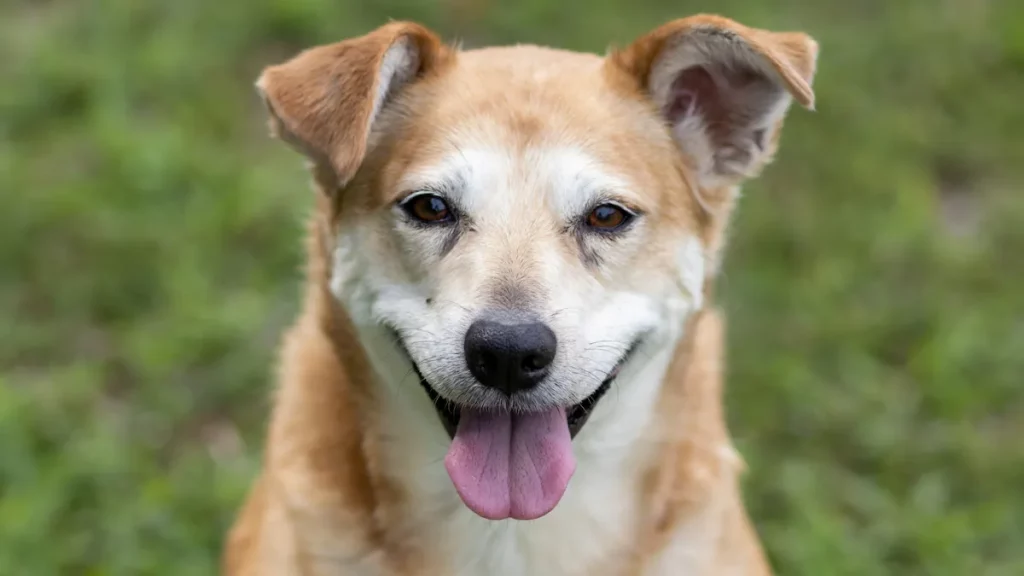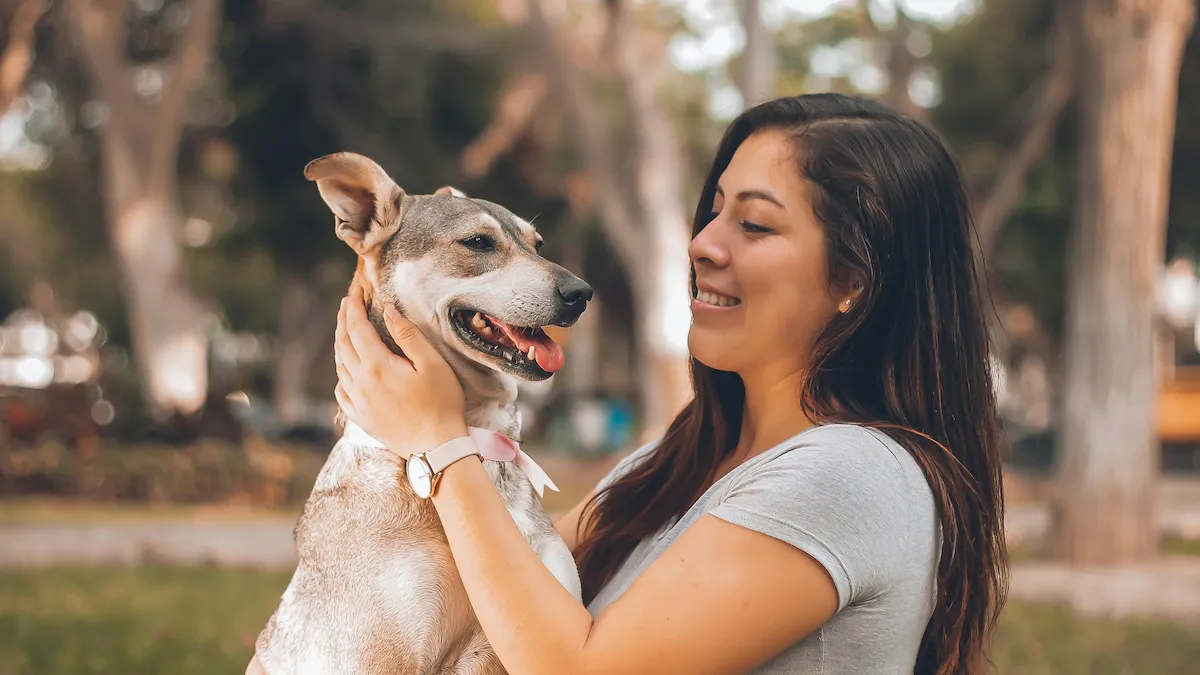
Introduction
It’s completely natural to want to help your dog through anxiety on your own.
You might try calming routines, safe spaces, or soothing scents — and often, these steps make a world of difference.
But sometimes, despite our best efforts, anxiety becomes too overwhelming for a dog to manage alone.
Learning when to seek professional help for dog anxiety is an act of love, not failure.
It shows just how much you care about your dog’s emotional and physical well-being.
In this guide, we’ll explore the signs that it might be time to get expert support and the kinds of professionals who can help your dog feel safe, happy, and calm again.
Why Seeking Professional Help Matters
Just like people, dogs can struggle with mental health challenges that require specialized care.
Ignoring severe anxiety doesn’t just affect their emotional state — it can lead to serious health problems, behavioral issues, and even a diminished quality of life.
By recognizing when to get help for dog anxiety, you’re giving your dog a real chance to heal.
Early intervention often leads to faster improvement and a stronger bond between you and your pup. Knowing when to seek professional help for dog anxiety can make the healing process smoother and less stressful for everyone.
7 Signs It’s Time to Seek Professional Help
1. Destructive Behavior Beyond Normal Chewing
Most puppies chew shoes or furniture at some point, but destruction caused by panic looks very different.
If your dog is clawing at doors, tearing apart crates, or destroying furniture with frantic energy, it’s a red flag for severe anxiety.
This kind of behavior isn’t “bad” — it’s a desperate attempt to escape overwhelming fear.
2. Self-Harming Behaviors
When anxiety becomes unbearable, some dogs hurt themselves without realizing it.
You might notice excessive licking, chewing their own paws or tails, or scratching until they bleed.
These are signs of deep emotional distress, and your dog needs compassionate, professional help to recover.
3. Constant Vocalization (Barking, Howling, Whining)
It’s normal for dogs to bark occasionally, but if your dog barks, howls, or whines nonstop, especially when you’re home, anxiety could be the cause.
Self-harming behaviors often indicate deep emotional distress. Learning how to calm an anxious dog naturally can sometimes help in the early stages, but professional intervention is crucial for severe cases.
Persistent vocalizations often mean your dog feels trapped in a cycle of stress they can’t break without support.
4. Sudden Aggression or Fearfulness
If your normally sweet dog suddenly growls, snaps, or lunges at strangers, other dogs, or even family members, it can be terrifying.
Fear-based aggression is often a symptom of untreated anxiety, and it’s something a professional can help manage before it worsens.
5. Extreme Pacing or Inability to Settle
Some anxious dogs can’t relax, even in familiar, calm environments.
They might pace in circles, wander restlessly through the house, or seem unable to lie down and rest.
This constant motion is your dog’s way of trying — and failing — to soothe themselves.
6. Severe Separation Anxiety
Mild separation anxiety is common, but if your dog howls for hours, breaks out of crates, or soils the house despite training efforts, it’s time for expert help.
Severe cases often need a combination of behavioral therapy and, sometimes, medical support to heal fully.
7. Complete Shutdown (Freezing or Hiding Constantly)
Some dogs respond to overwhelming anxiety by withdrawing completely.
They may hide under beds, refuse to interact, or “freeze” when approached.
This heartbreaking shutdown is a cry for help — and a clear signal that your dog needs professional intervention to feel safe again.
Recognizing these signs early and choosing to seek professional help for dog anxiety can prevent emotional pain and strengthen your dog’s long-term well-being.
Who Can Help? Understanding Your Professional Options

✅ Your Veterinarian:
Always the first stop. They can rule out medical issues that may look like anxiety (like pain or hormonal problems) and recommend next steps.
✅ Veterinary Behaviorist:
A specialist trained to treat complex behavioral and emotional issues.
You can find one through the American College of Veterinary Behaviorists (ACVB).
✅ Certified Dog Trainer or Behavior Consultant:
Look for professionals who use positive reinforcement methods. They can help desensitize your dog to triggers safely and gently.
✅ Fear-Free Certified Professionals:
These experts focus on minimizing fear and anxiety during training, vet visits, and daily life.
Choosing the right support can make all the difference in your dog’s healing journey.
What to Expect When You Seek Professional Help
Reaching out for professional help might feel intimidating, but the process is often simple and compassionate.
Here’s what usually happens:
- A full health checkup to rule out physical causes
- Behavior assessments and interviews about your dog’s history
- Creation of a personalized behavior modification plan
- Discussion about natural remedies, supplements, or, in some cases, medications
- Regular progress updates and support as you and your dog work together
Remember: progress takes time.
Just like people, dogs heal at their own pace.
With the right support, your anxious dog can rediscover joy, confidence, and calmness.
For more insights on dog behavior and anxiety, check out the American Kennel Club (AKC) on pet anxiety.
Conclusion
Seeking professional help for dog anxiety doesn’t mean you’ve failed your dog — it means you love them enough to get them the help they truly need.
Trust your instincts.
If your dog seems overwhelmed, trapped in fear, or unable to cope despite your best efforts, reaching out for expert guidance is one of the kindest gifts you can give.
Together, with patience, compassion, and support, you and your dog can build a future filled with more peace, trust, and happiness. Explore more gentle tips and calming strategies on our blog.
If you’re still unsure whether your dog is showing early warning signs, take a look at our guide on 10 Early Signs of Anxiety in Dogs.

📣 We’d Love to Hear from You!
Has your dog ever needed professional help for anxiety?
🐾 Share your journey in the comments below!
Your story could comfort or inspire another dog parent facing the same challenges. 💛
Written by Vaughn Andrews — Founder of Gentle Dog Care
Helping anxious and aging dogs live happier lives with natural care, gentle routines, and a whole lot of love.


1 thought on “When to Seek Professional Help for Dog Anxiety”